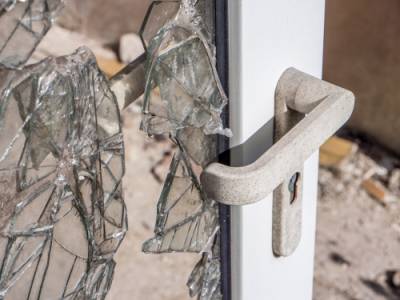Recent Blog Posts
What Are the Penalties For a Burglary Conviction in Illinois?
 In everyday conversation, we often use the terms “theft,” “robbery,” and/or “burglary” in place of one another. However, in the legal world, these three terms all have very distinct meanings and carry different sentences if a person were to be convicted of those crimes. A burglary charge is a serious offense in Illinois and can result in felony charges and potential imprisonment. If you have been accused of burglary in Illinois, having a skilled criminal defense attorney on your side can be immensely helpful.
In everyday conversation, we often use the terms “theft,” “robbery,” and/or “burglary” in place of one another. However, in the legal world, these three terms all have very distinct meanings and carry different sentences if a person were to be convicted of those crimes. A burglary charge is a serious offense in Illinois and can result in felony charges and potential imprisonment. If you have been accused of burglary in Illinois, having a skilled criminal defense attorney on your side can be immensely helpful.
Defining Burglary and Residential Burglary in Illinois
When a crime is referred to as “burglary,” the alleged crime took place in a building, such as a warehouse. In the state of Illinois, a charge exists specifically for burglaries that take place inside of a person’s home. The crime of residential burglary occurs when a person knowingly and without authority enters or remains inside of a person’s home with the intent to commit a felony or theft. In other words, you do not actually have to commit a crime or steal anything -- you can be convicted of residential burglary if the prosecution can prove that you unlawfully entered the home and had the intention of committing a crime or theft. A residential burglary offense can also apply to a person who falsely represents themselves as a person from a utility, construction, or telecommunications company, or member of the government, with the intent of committing residential burglary.
Does Your BAC Affect Penalties for DUI in Illinois?
 Despite decades of anti-impaired driving ad campaigns, driving under the influence (DUI) remains a prominent issue in the United States. According to the Illinois Secretary of State, there were more than 26,000 arrests made for driving while under the influence of drugs and/or alcohol in Illinois alone in 2019. DUI can be extremely dangerous and sometimes even deadly for those on the road. The National Highway Traffic Safety Administration (NHTSA) reported more than 10,100 deaths occurred due to drunk driving accidents across the country in 2019. DUI is often punished harshly to attempt to deter offenders from reoffending. Various factors can affect the severity of a DUI conviction, but many people do not realize that their blood alcohol content (BAC) level can also affect their DUI charge.
Despite decades of anti-impaired driving ad campaigns, driving under the influence (DUI) remains a prominent issue in the United States. According to the Illinois Secretary of State, there were more than 26,000 arrests made for driving while under the influence of drugs and/or alcohol in Illinois alone in 2019. DUI can be extremely dangerous and sometimes even deadly for those on the road. The National Highway Traffic Safety Administration (NHTSA) reported more than 10,100 deaths occurred due to drunk driving accidents across the country in 2019. DUI is often punished harshly to attempt to deter offenders from reoffending. Various factors can affect the severity of a DUI conviction, but many people do not realize that their blood alcohol content (BAC) level can also affect their DUI charge.
BAC and DUI
In nearly every state, the legal limit for your blood-alcohol concentration (BAC) when operating a vehicle is 0.08 percent. If you take a breathalyzer test and your BAC registers as anything over 0.08, you are technically driving under the influence of alcohol and can be arrested and tried for DUI. The actual value of your BAC can also affect the severity of your DUI charges.
When is the Use of Physical Force Justifiable in Illinois?
 In some situations, the only way to protect yourself or others is to use physical force against another person. Nearly every state has a law governing the use of force against other people and when it is and is not appropriate, including Illinois. Everyone has the right to protect themselves from danger, even if the consequences become serious, but you must be able to prove that your use of force was in fact legal. If you are facing charges for assault and/or battery stemming from self-defense, you should immediately speak with a skilled Illinois criminal defense lawyer about your options.
In some situations, the only way to protect yourself or others is to use physical force against another person. Nearly every state has a law governing the use of force against other people and when it is and is not appropriate, including Illinois. Everyone has the right to protect themselves from danger, even if the consequences become serious, but you must be able to prove that your use of force was in fact legal. If you are facing charges for assault and/or battery stemming from self-defense, you should immediately speak with a skilled Illinois criminal defense lawyer about your options.
Use of Force Against Another Person
Illinois law states that a person is justified if they use force against another person if they reasonably believe that the use of force is necessary to defend themselves. However, if the force used is deadly force, it is only justified if the person using that force reasonably believes that the use of deadly force was the only way they could protect themselves or another person from death, great bodily harm, or the commission of a forcible felony. This means that you must be able to prove that the person you acted against acted in a way that was threatening to your personal safety, that using force was the only way to protect yourself, and that the level of force you used was reasonable and appropriate for the situation.
What Happens if You Violate Probation in Illinois?
 In general, a probation sentence is considered one of the more desirable sentences after a criminal conviction. Probation is an alternative to jail time when you have been convicted of a crime. Sometimes, a judge may sentence a person to probation if the crime they were convicted of was not serious or if the person does not pose a risk to society. When you are on probation, there are likely going to be various requirements you must meet, as well as certain things that you will not be permitted to do. If you violate any of the terms of your probation, you could end up in more trouble than you originally were.
In general, a probation sentence is considered one of the more desirable sentences after a criminal conviction. Probation is an alternative to jail time when you have been convicted of a crime. Sometimes, a judge may sentence a person to probation if the crime they were convicted of was not serious or if the person does not pose a risk to society. When you are on probation, there are likely going to be various requirements you must meet, as well as certain things that you will not be permitted to do. If you violate any of the terms of your probation, you could end up in more trouble than you originally were.
Attending Your Probation Hearing
If your probation officer notifies the probation board that you have allegedly violated the terms of your probation, the board will likely request your presence at a hearing to determine what will be done about the situation. If the court finds that you have violated the terms of your probation, there are three things that could happen: the court could decide to maintain the terms of your probation, allow you to continue with probation with modified terms, or the court could revoke your probation and enter any other sentence available for your original crime.
What Should I Expect From an Illinois Traffic Court Hearing?
 There are so many rules that you must follow when you are driving, it is not difficult to break one of those rules. If you are caught breaking those rules, however, it is likely that you will receive a traffic citation. Most people have received at least a small citation in their lifetime, but the penalties for traffic violations can vary depending on the specific offense and the seriousness of the offense. In some cases, you may be required to attend a hearing in traffic court.
There are so many rules that you must follow when you are driving, it is not difficult to break one of those rules. If you are caught breaking those rules, however, it is likely that you will receive a traffic citation. Most people have received at least a small citation in their lifetime, but the penalties for traffic violations can vary depending on the specific offense and the seriousness of the offense. In some cases, you may be required to attend a hearing in traffic court.
Traffic Court Procedure
If you do have to attend traffic court, the officer issuing you the ticket will inform you of this, as well as check a box on your ticket that states this requirement. If you have received a traffic violation requiring you to attend traffic court, here is the procedure you should expect to go through:
-
Determining your plea: When you are issued a ticket, you must sign the ticket to acknowledge that you have received it, whether or not you agree with the citation. If you are not required to attend traffic court, but you disagree that you are guilty, you can request a traffic court hearing.
Can I Face Charges for Driving With a Suspended or Revoked License in Illinois?
 There are a handful of reasons why a person could end up with a suspended or revoked license. Some of these reasons do not even relate to driving, yet you can still lose your license all the same. Not paying fines relating to parking tickets, tolls, or automatic traffic violations, can lead to license suspension. Failing to pay court-ordered child support or failing to appear for a traffic citation could also result in a license suspension. Driving while under the influence (DUI) is one of the most common reason a person has their license suspended or revoked. Though it can be irksome to lose your ability to drive, choosing to drive even while your license is suspended or revoked can result in criminal penalties.
There are a handful of reasons why a person could end up with a suspended or revoked license. Some of these reasons do not even relate to driving, yet you can still lose your license all the same. Not paying fines relating to parking tickets, tolls, or automatic traffic violations, can lead to license suspension. Failing to pay court-ordered child support or failing to appear for a traffic citation could also result in a license suspension. Driving while under the influence (DUI) is one of the most common reason a person has their license suspended or revoked. Though it can be irksome to lose your ability to drive, choosing to drive even while your license is suspended or revoked can result in criminal penalties.
Penalties for Driving With a Suspended License
How Does Illegal Search and Seizure Affect Drug Crime Cases?
 When a person is arrested and charged with drug crimes, the prosecution’s case will often rely on the evidence recovered. Drugs or drug paraphernalia that are found on a person, in their vehicle, or in their home may be used as evidence, and depending on the amount of drugs and other types of evidence, such as materials used to manufacture or package drugs, a person may face charges of drug possession or drug manufacturing and delivery. However, police officers are required to follow the law when performing searches, and in cases involving illegal search and seizure, the evidence recovered by police officers may be inadmissible.
When a person is arrested and charged with drug crimes, the prosecution’s case will often rely on the evidence recovered. Drugs or drug paraphernalia that are found on a person, in their vehicle, or in their home may be used as evidence, and depending on the amount of drugs and other types of evidence, such as materials used to manufacture or package drugs, a person may face charges of drug possession or drug manufacturing and delivery. However, police officers are required to follow the law when performing searches, and in cases involving illegal search and seizure, the evidence recovered by police officers may be inadmissible.
When Can Domestic Violence Accusations Lead to Felony Charges?
 Being accused of domestic violence can be devastating. These types of claims can permanently damage a person’s reputation while also affecting their relationships with family members or friends. Accusations can also lead to criminal charges, and in serious cases, these crimes may be considered felony offenses. A felony conviction can result in a prison sentence of one year or more, as well as up to $25,000 in fines. In domestic violence cases, a person will need to know how the law applies to them and their options for defense.
Being accused of domestic violence can be devastating. These types of claims can permanently damage a person’s reputation while also affecting their relationships with family members or friends. Accusations can also lead to criminal charges, and in serious cases, these crimes may be considered felony offenses. A felony conviction can result in a prison sentence of one year or more, as well as up to $25,000 in fines. In domestic violence cases, a person will need to know how the law applies to them and their options for defense.
Felony Domestic Violence Charges
Accusations of domestic violence may result in the following types of felony charges:
-
Domestic battery - This offense may apply if a person allegedly caused bodily harm to a member of their family or a person who lived in their household. While a first conviction of domestic battery is usually prosecuted as a Class A misdemeanor, a second offense is a Class 4 felony. Aggravated domestic battery charges may apply if a person’s actions allegedly caused great bodily harm, permanent disability, or disfigurement, or if they allegedly strangled a person while committing domestic battery. Aggravated domestic battery is a Class 2 felony.
Will I Need to Attend a Formal or Informal Hearing to Get My License Back?
 Most people need to be able to drive as part of their daily activities. Getting to and from work, transporting children to school or other activities, or running errands will usually require the use of a car. This means that whenever a person loses their driver’s license, they will want to understand how they can get their driving privileges reinstated as quickly as possible. Depending on whether an Illinois resident’s license was suspended or revoked, they may need to attend a license reinstatement hearing, and the reason they lost their license will determine whether a formal or informal hearing will be required.
Most people need to be able to drive as part of their daily activities. Getting to and from work, transporting children to school or other activities, or running errands will usually require the use of a car. This means that whenever a person loses their driver’s license, they will want to understand how they can get their driving privileges reinstated as quickly as possible. Depending on whether an Illinois resident’s license was suspended or revoked, they may need to attend a license reinstatement hearing, and the reason they lost their license will determine whether a formal or informal hearing will be required.
Is an Ignition Interlock Device Mandatory After an Illinois DUI?
 Being arrested for drunk driving can lead to multiple different types of consequences, especially if you are convicted for the criminal offense of driving under the influence (DUI). If you are convicted of DUI, your driver’s license will be revoked for at least one year, but even if you are not convicted, your license will be suspended if your blood alcohol content (BAC) was above the legal limit or if you refused to submit to blood alcohol testing. In order to regain your driving privileges, you may need to have a breath alcohol ignition interlock device (BAIID) installed in your vehicle.
Being arrested for drunk driving can lead to multiple different types of consequences, especially if you are convicted for the criminal offense of driving under the influence (DUI). If you are convicted of DUI, your driver’s license will be revoked for at least one year, but even if you are not convicted, your license will be suspended if your blood alcohol content (BAC) was above the legal limit or if you refused to submit to blood alcohol testing. In order to regain your driving privileges, you may need to have a breath alcohol ignition interlock device (BAIID) installed in your vehicle.
First-Time DUI and Ignition Interlock Devices
Following a first-time DUI arrest or conviction, you may be eligible to receive a Monitoring Device Driving Permit (MDDP) while your license is suspended. This permit will not place any restrictions on where or when you can drive, but it will require you to install a BAIID in any vehicles you will be driving. Before driving, you will blow into this device, and the vehicle will not start unless the breath sample is negative for alcohol. The device will also take your picture to ensure that you are the one who is providing the breath sample.







